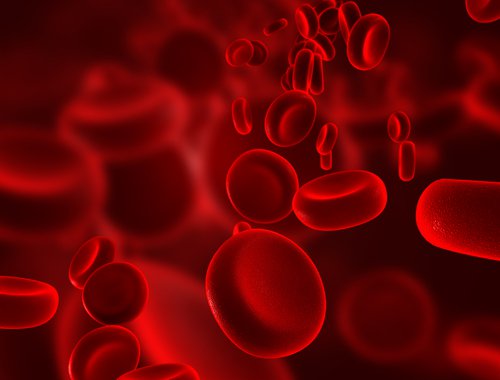7 Warning Signs of Cervical Cancer

Until about 40 years ago, cervical cancer represented one of the greatest threats of death for women. Today, due to medical and technological advances, deaths from this disease have declined significantly. However, since it continues to be a threat, we should know about the main warning signs of cervical cancer.
Research, medicine and technological advancement have been able to determine key symptoms that allow the detection of the disease in time to give early treatment. For this reason, it’s important that all women are well informed about the warning signs of cervical cancer and consult a doctor early if they feel they’re at risk.
What are the Risk Factors for Cervical Cancer?
Knowing the risk factors for cervical cancer is also very important for prevention or timely detection. With this information women can identify if they’re potentially at risk of developing the disease.
- Infection with Human Papillomavirus (HPV): HPV virus is a major cause of cervical cancer. It’s transmitted through sexual intercourse and can usually be detected with a Pap smear or by detection of warts in the genital area.
- Diet: A poor diet can lead to a state of being overweight or obese, which increases the risk of developing cervical cancer.
- Genetics: Women who have a genetic history of cervical cancer have three times more probability of developing this disease.
- HIV: This virus weakens the immune system and puts the body at a higher risk of becoming infected with HPV.
- Consumption of tobacco or snuff.
- Early age of first sexual intercourse.
- High number of children.
- Menopause after age 52.
- Diabetes.
- High blood pressure.
- Exposure to high levels of estrogen.
What are the Warning Signs of Cervical Cancer?
One of the disadvantages of cancer is that it is often a silent disease in its early stages; this is one of the reasons why there continue to be many deaths from this disease. However, being warned in time by the symptoms is key to timely detection and treatment.
Leg pain
One of the most common signs of cervical cancer during the early stages is pain and swelling in the legs. This happens because the cervix swells and prevents normal blood flow, ultimately causing this painful sensation.
Vaginal discharge
Vaginal discharge is normal when secreted infrequently and without color or odor. If vaginal discharge increases, smells and has an irregular appearance, it’s best to consult a doctor.
It can be one of the signs of cervical cancer.
Also read: Vaginal Infections: The Types and Causes
Unusual bleeding

This is one of the most common signs of cervical cancer. Some women have irregular periods and should consult a physician to determine the possible cause of the irregularity.
If until now your periods have been normal and now you start bleeding between periods or after sexual intercourse, it’s important to take warning and consult with a doctor.
Uncomfortable urination
What happens following urination can help detect cervical cancer in several ways. The most obvious symptom is discomfort with urination, such as itching, tightness and other sensations that make you feel uncomfortable.
This symptom, in the vast majority of cases, is indicative of a urinary tract infection. However, when these urinary symptoms are frequent and lasting, it’s very important to seek immediate medical attention.
Irregular urination

Apart from the discomfort, changes in urination habits can also be a key signal to detect this disease.If you begin to suffer from incontinence, urinating more often than usual, or you notice discoloration, these are key warning signs.
Pain during sexual intercourse
Feeling discomfort or pain during sexual intercourse is another key symptom to detect cervical cancer. In this case, it’s best to consult a doctor to determine the reason for your pain during sexual intercourse.
Read also: 11 Causes of Pain During Sexual Intercourse
Pelvic pain
Pelvic pain is usually very common during a menstrual cycle.
However, when the cramps and pelvic pain last longer than normal, or are more frequent or intense, it’s important to be alert and consult a specialist.
All cited sources were thoroughly reviewed by our team to ensure their quality, reliability, currency, and validity. The bibliography of this article was considered reliable and of academic or scientific accuracy.
Cancer.net. (2019). Cervical Cancer – Symptoms and Signs. Retrieved from https://www.cancer.net/cancer-types/cervical-cancer/symptoms-and-signs
WebMD. (2017). Cervical Cancer: Causes, Symptoms, Diagnosis, Treatment, & Outlook. Retrieved from https://www.webmd.com/cancer/cervical-cancer/cervical-cancer
This text is provided for informational purposes only and does not replace consultation with a professional. If in doubt, consult your specialist.








